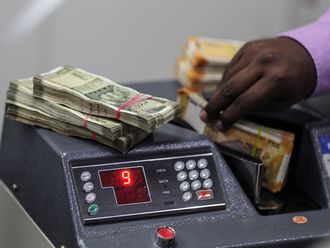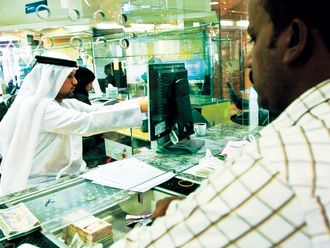Beijing: China tightened rules on personal and working capital loans to prevent them from being used for speculation after credit growth and asset prices gained.
Lenders shouldn't "over-grant" the loans that companies use to finance goods and services and must reasonably calculate their "real demand", the China Banking Regulatory Commission said in a statement today.
The rules took effect on February 12.
The tightening reflects concern that funds might have been diverted to stocks and property, raising the risk of asset bubbles and bad loans. Banks extended 19 per cent of this year's 7.5 trillion yuan (Dh4.02 trillion) lending target in January and property prices rose the most in 21 months.
Punishment
The regulator will punish lenders that freely distribute working capital loans and companies that use such loans for purposes such as capital expenditure, stake investment and some other areas that the government doesn't allow, CBRC said.
China took the second step in a month to restrain inflation and damp asset prices by ordering lenders on the eve of a week-long holiday to set aside larger reserves.
The benchmark Shanghai Composite Index has declined 7.9 per cent this year to 3,018.13 on February 12, before the reserve-ratio announcement.
Liu Mingkang, chairman of the banking regulator, said in an opinion piece in January that bank loans had been channelled into stock and property markets and the watchdog "stepped in to stop that".
China tightened rules on loans for homes, automobiles, fixed-asset investments and working capital to limit speculative flows.
For personal loans, advances exceeding 300,000 yuan will be given directly to the borrower's counter-party, rather than the borrower, CBRC said in a separate statement. The rules were also effective on February 12.
Banks will be barred from issuing personal loans without identifying the intended use and they must meet the borrowers in person before granting credit to avoid fraud, the CBRC said.
Draft rules were announced in July and October, respectively.












